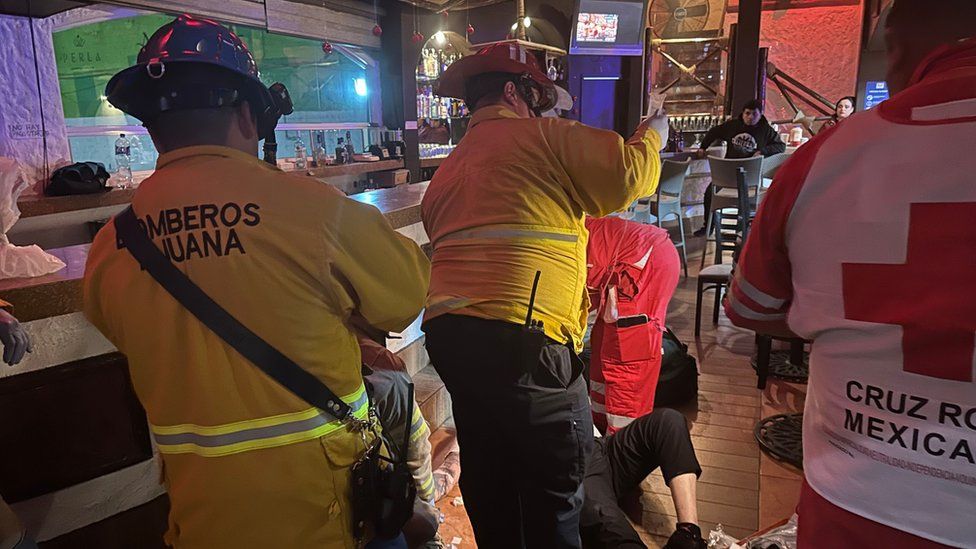-

-
-
Loading

Loading

Paramedics in Tijuana are dealing with a growing number of fentanyl overdoses, a synthetic opioid 50 times stronger than heroin. The drug is being cut into recreational drugs like cocaine by Mexican drug cartels because it is cheap and easy to produce and transport. Tijuana is experiencing a drug epidemic, but the country's president, Andrés Manuel Lopez Obrador, has downplayed the severity of the problem. Fentanyl is causing a significant strain on paramedics, who are responding to two or three overdoses each night, and sometimes as many as six or seven in a single call. The city's emergency services are equipped with Narcan, the most effective drug to reverse a fentanyl overdose. Authorities are now testing every dead body that comes into Tijuana's morgues for fentanyl, and the results show that approximately one in three bodies tested have the drug present. Those working with drug addicts emphasize that the crisis has been underestimated and urge authorities to take action. In the neighboring US, fentanyl has caused an estimated 70,000 deaths last year. Elijah Gonzales was one of the victims, dying at just 15 years old after taking a fentanyl-laced counterfeit Xanax pill. The situation has led to comparisons to the crack epidemic of the 1980s and discussions about sending troops into Mexico to combat the cartels. However, due to the ease of transportation, it is nearly impossible to completely stop the flow of fentanyl into the US. In Ciudad Juárez, a 17-year-old drug smuggler and hitman for a cartel named Kevin believes that fentanyl is the future of the illegal drug trade due to its potency and high demand. He feels no remorse for the deaths caused by the drug, saying that everyone is responsible for their own actions.